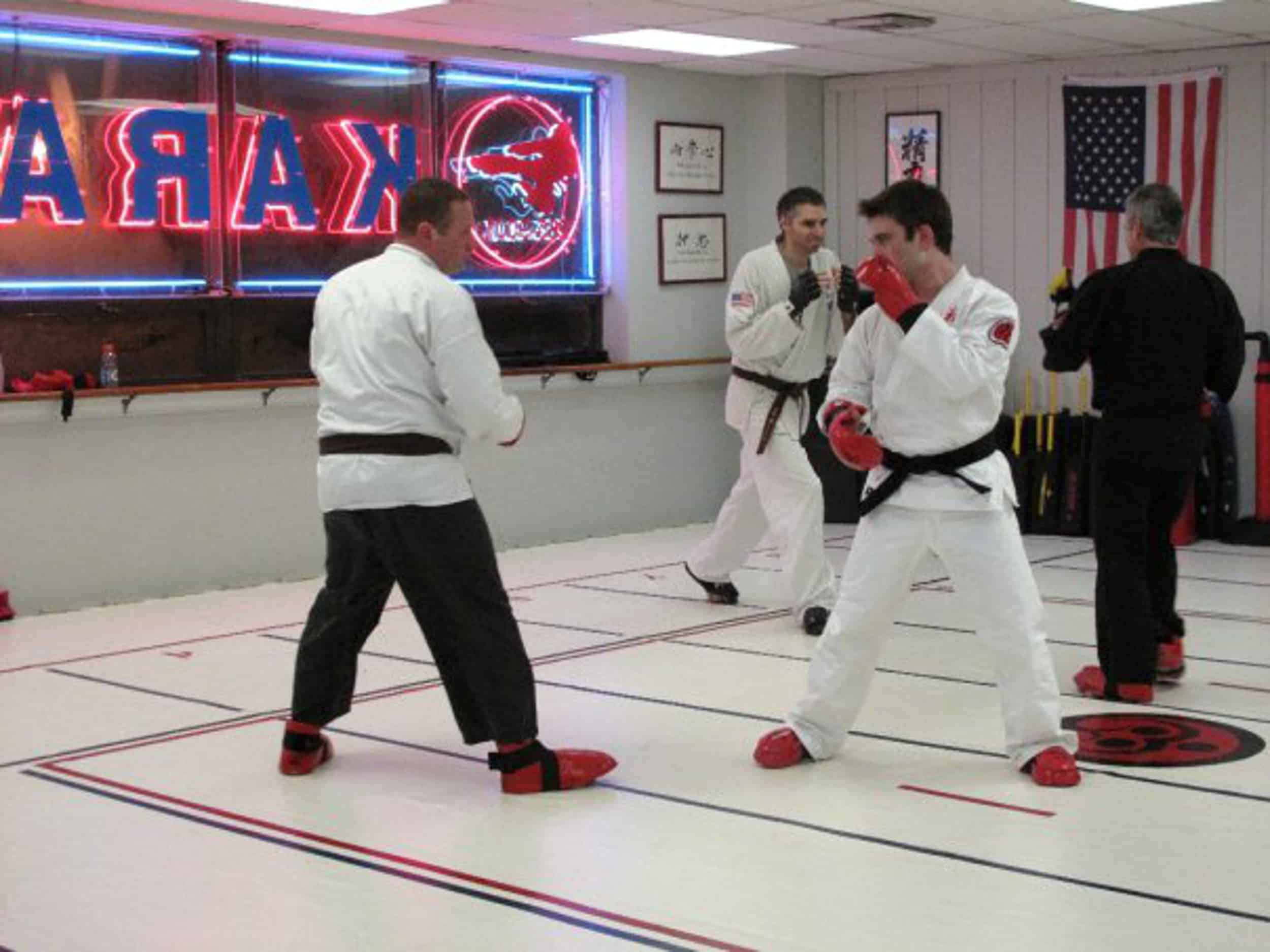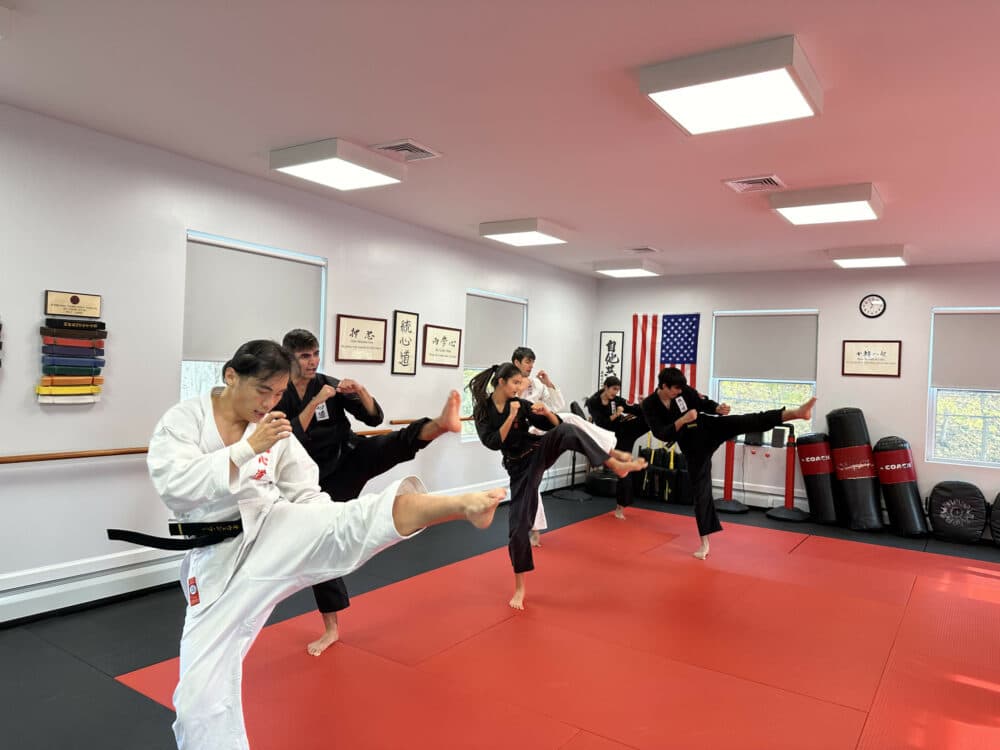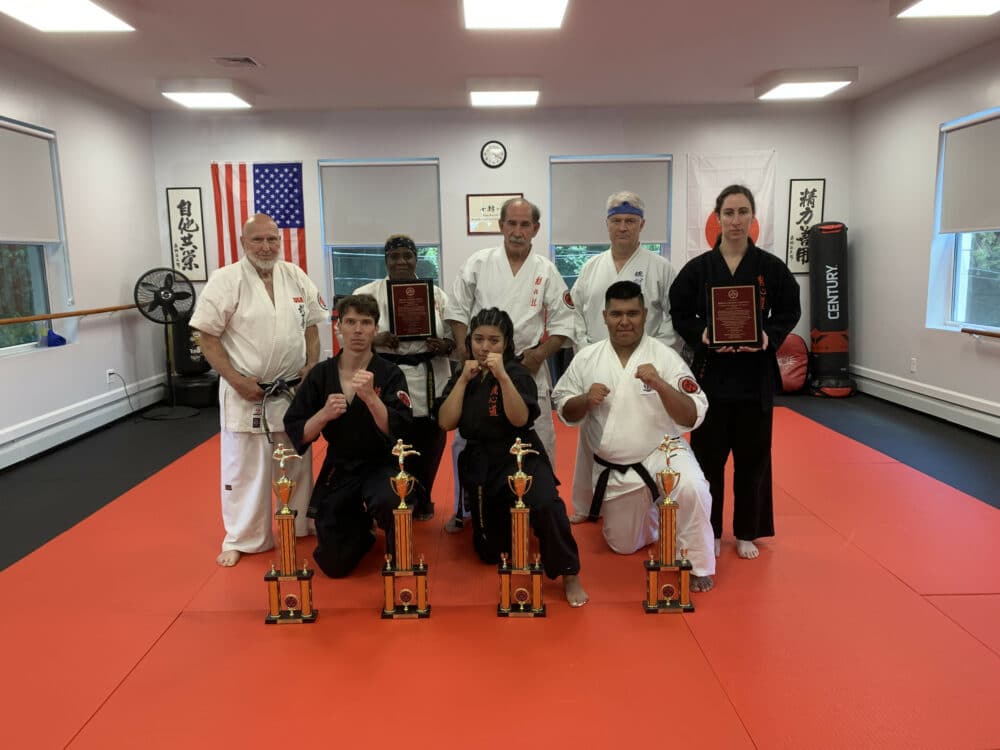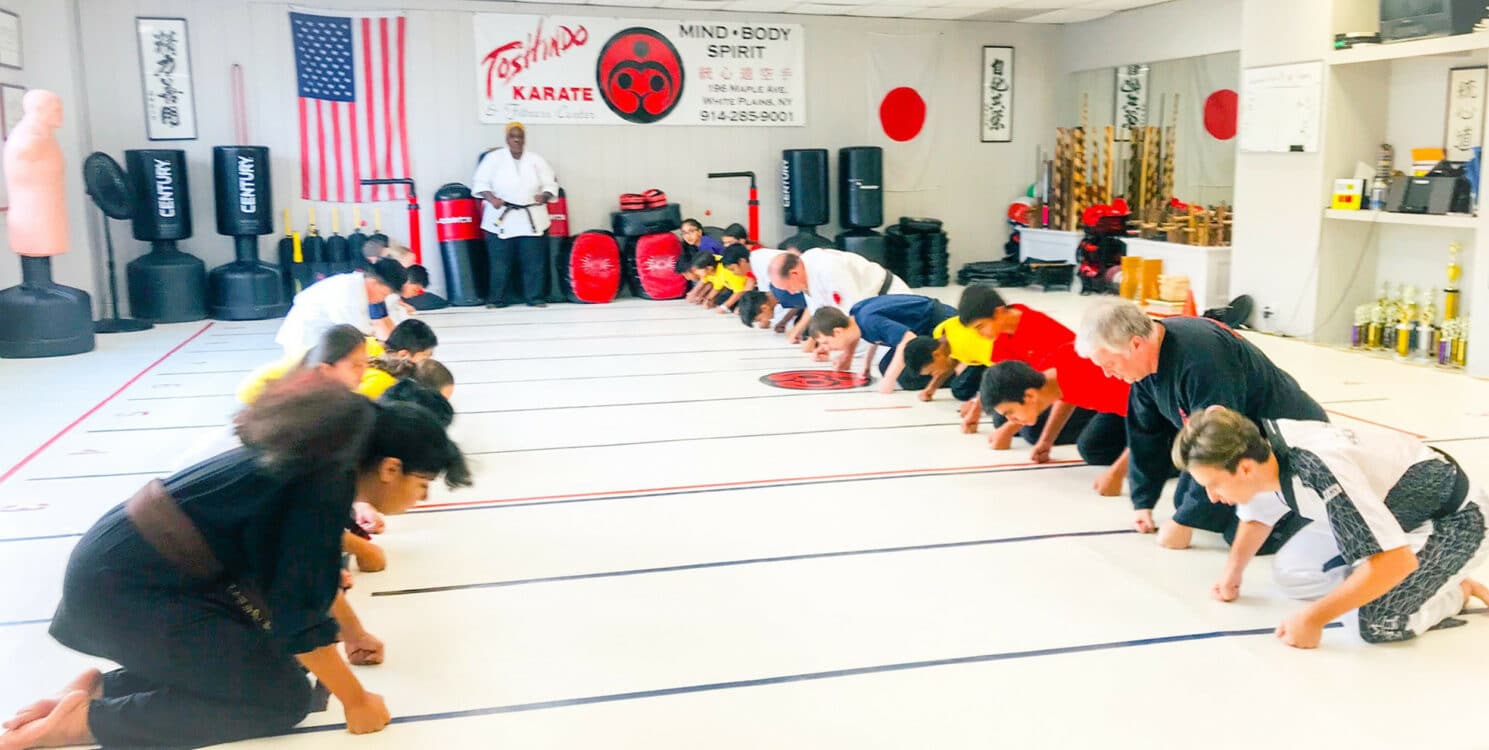
Foundations of Karate
Discover Toshindo Karate
In 520 A.D., the Buddhist monk Bodhidarma left India for China, eventually reaching the Shaolin Monastery. During his journey, he developed physical movements to maintain health and protect himself. This practice evolved into Wushu, later known as Kempo, spreading from China to Korea, Okinawa, and Japan.
By 1916, Master Gichin Funakoshi introduced “Chinese Hands” to Japan. To reflect deeper meaning, the term was changed to “Empty Hands” or karate, symbolizing self-defense without weapons.
<< Back To Programs
Philosophy
Karate Means “Empty Hands”;
To-Shin-Do Means to Unify the Mind, Body and Spirit.
Karate is more popular now than ever before in its history. Because of the movies, television and magazines, karate is widely perceived as a purely physical art, with spinning kicks and lightening-fast punches. Karate practice certainly develops strength, stamina and physical well-being; however, this is not the heart of karate.
Karate is a way of life, a way of being. The true essence of karate is the training of body, mind and spirit together in order to realize the fullness of human potential. Translated, Toshindo, which is the style taught and studied by Shuseki Shihan Donald LaMattina, means to unify the mind, body and spirit.

Dojo
The word “Dojo” comes from the word Bohimandala, a Sanskrit word which means “place of enlightenment.” Therefore, the Dojo is a special place, where everyone comes to study and perfect the self. The Dojo is a place to foster a sense of community and belonging and caring for each other. All students observe the formalized etiquette of the Dojo that includes how to greet people, how to enter and leave the Dojo, how to fix your uniform while on the mat, and how to tie your belt. Everyone observes these formalities.
A true Karate-ka seeks balance and harmony in his or her life. They develops a strong body and spirit so as to better serve others.
The principles and values, such as patience, concentration, respect and courtesy are completely transferable and universally applicable to our daily activities in or away from home. The true Karate-ka strives to be the best student, worker, husband, wife, parent or child possible.
Karate-do, like life which it mirrors, is a struggle: a struggle with our weaknesses, frustrations, narrow-mindedness and prejudices. Growth in the way of karate comes through unceasing, repetitive daily practice of the basics. This is called Ren Ma or (constant polishing). Modern society often frowns upon repetition as stifling or boring. The discipline of single-minded repetition is at the heart.

Bowing
The purpose of bowing in Dojos is to show respect and courtesy. When we bow, that moment of humility helps us to understand the importance of other people and institutions in our lives. We forget ourselves and our own egos and focus on spiritual growth.
Free Trial Class
Are you ready to take the first step towards mastering Karate, boosting your fitness, and growing stronger both physically and mentally? Toshindo Martial Arts in White Plains, NY, is excited to offer you a special opportunity: A FREE Trial Class for all new members!
Toshindo Martial Arts
Get Started Today
Toshindo Karate invites nearby communities, including Valhalla, Thornwood, West Harrison, and Scarsdale, to practice martial arts in West Plains, beside Townhouse Diner.